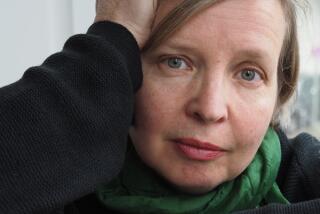NONFICTION - April 28, 1991
- Share via
AFTER THE WALL: East Meets West in the New Berlin by John Borneman (Basic Books: $21.95; 258 pp.). With the party at the Wall over, many East Germans have begun to fear that “reunification” will in fact be a one-sided process. A few business writers have explored the practical roots of this anxiety: the concern that demand for Western goods will stimulate production in the West, not investment in the East. But the task of probing the culture shock has so far been taken up only by anthropologists such as Borneman, who are beginning to study modern life now that the last tribal village has joined the global village. Capitalism surely will benefit the East Germans, Borneman acknowledges, but he nevertheless laments the “depoliticization and paralysis” that it tends to cause in its subjects. Borneman’s unhappiness with this process sometimes leads him to mouth empty Socialist rhetoric: e.g., “Capitalism infiltrates even the bedroom . . . where love is made according to advertisements.” More often, though, it motivates him to ponder fundamental questions, such as the Eastern Europeans’ struggle to retain something uniquely indigenous. “Is there a central European culture,” he asks, “apart from the ethnically intolerant one that dissolved after World War II? . . . Are ‘East’ and ‘West’ the only peoples imaginable?”
More to Read
Sign up for our Book Club newsletter
Get the latest news, events and more from the Los Angeles Times Book Club, and help us get L.A. reading and talking.
You may occasionally receive promotional content from the Los Angeles Times.










